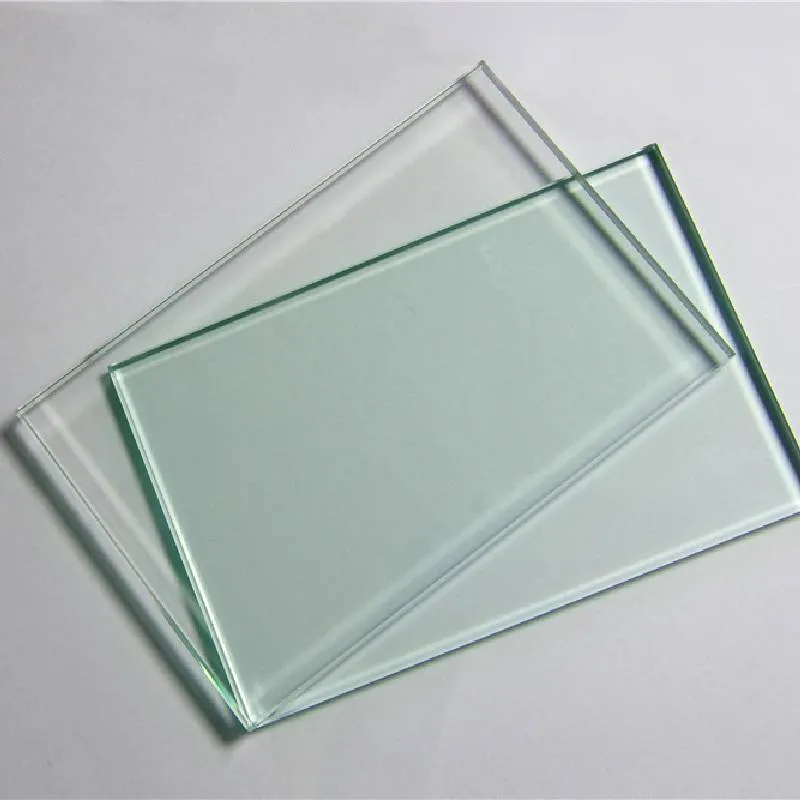

When it comes to flawless transparency and versatile applications, nothing beats float glass as the foundation of modern glazing solutions. As the most widely used basic glass type worldwide, float glass forms the essential starting point for countless architectural and interior design projects. From standard annealed float glass to specialized borosilicate float glass and advanced coated float glass options, today's market offers a complete range of types of float glass to meet every technical requirement and design vision. Our factory produces premium-quality float glass products that combine optical clarity with structural reliability, serving industries ranging from construction and automotive to home appliances and solar energy.

The revolutionary float glass manufacturing process has transformed how we produce high-quality glass since its invention in the 1950s. By floating molten glass on molten tin, this method creates perfectly flat, distortion-free sheets with uniform thickness - a significant improvement over earlier glass production techniques. Standard float glass offers excellent light transmission (typically 91% visible light) and comes in thicknesses ranging from 2mm to 25mm to suit various applications. As the base material for further processing, float glass can be cut, drilled, edged, bent, tempered, or laminated to create customized solutions. Whether used for windows, mirrors, furniture, or display cases, this versatile material provides the ideal balance of clarity, workability, and cost-effectiveness that makes it the first choice for projects worldwide.
Annealed float glass represents the basic form of glass as it comes directly from the float production line before undergoing any additional strengthening treatments. This standard annealed float glass has smooth, parallel surfaces free from optical distortions, making it perfect for applications where exceptional clarity is paramount. While not as impact-resistant as tempered alternatives, annealed float glass offers easier workability for cutting and shaping on-site, along with the ability to undergo secondary processing like sandblasting or acid etching. Common uses for annealed float glass include picture frames, cabinet doors, greenhouse panels, and interior partitions where safety glass isn't required. When broken, it fractures into sharp shards, which is why building codes often mandate tempering for glass used in doors, shower enclosures, and other high-risk locations.
For applications demanding exceptional thermal resistance and durability, borosilicate float glass stands out as the premium choice. By incorporating boron oxide into the glass composition, borosilicate float glass achieves remarkable thermal shock resistance - able to withstand temperature differentials up to 165°C without cracking. This makes it ideal for laboratory equipment, high-performance lighting, fireplace screens, and premium cookware. Compared to standard soda-lime float glass, borosilicate float glass also offers greater chemical durability and hardness, though at a higher production cost. Its lower coefficient of thermal expansion (about one-third that of regular glass) ensures dimensional stability under temperature fluctuations. For projects where thermal stress is a concern or where glass must endure repeated heating/cooling cycles, borosilicate float glass provides unmatched reliability and longevity.
Advanced coated float glass products bring enhanced functionality to standard float glass through the application of specialized surface treatments. These high-tech coated float glass options include low-emissivity (Low-E) coatings that improve thermal insulation, solar control coatings that reduce heat gain, and self-cleaning coatings that minimize maintenance requirements. The beauty of coated float glass lies in its ability to maintain excellent visibility while adding valuable performance characteristics - some coatings are nearly invisible to the naked eye. Modern magnetron sputtering vacuum coating technology allows for precise application of multiple ultra-thin metal or oxide layers that can selectively reflect or transmit different wavelengths of light and heat. Architects increasingly specify coated float glass for energy-efficient building envelopes that contribute to green building certifications while creating comfortable, well-lit interior spaces.
With so many types of float glass available, selecting the optimal product requires careful consideration of your specific needs. Standard float glass works perfectly for basic applications where strength and thermal performance aren't critical factors. Annealed float glass serves as the ideal starting point for projects requiring further fabrication or artistic treatments. When extreme temperature resistance is needed, borosilicate float glass provides unmatched performance despite its higher cost. For contemporary buildings prioritizing energy efficiency, coated float glass offers smart solutions that reduce HVAC loads while maintaining visual appeal. Our technical team can help you navigate these options to identify the most cost-effective types of float glass for your particular application, whether you're working on a small home renovation or a large commercial development.
Traditional sheet glass has visible distortions and imperfections, while float glass offers optical clarity and uniform thickness thanks to its modern manufacturing process.
Yes, annealed float glass works for windows in many applications, though tempered glass may be required for safety in certain locations by building codes.
Borosilicate float glass provides 3-5 times better thermal shock resistance, making it essential for high-temperature applications like laboratory equipment or oven doors.
Quality coated float glass maintains its special properties for the life of the glass when properly installed and maintained, typically 20+ years.
Standard float glass comes in thicknesses from 2mm to 25mm, with 4mm, 5mm, 6mm, 8mm, 10mm, and 12mm being most common for architectural applications.
Discover the perfect float glass solution for your next project today! Whether you need standard annealed float glass, high-performance borosilicate float glass, or energy-saving coated float glass, our extensive inventory and expert guidance ensure you get exactly what you need. Visit our website https://www.tptopglass.com/ to explore our full range of types of float glass and request samples - our team stands ready to help you make the ideal selection for your specific requirements. Don't compromise on quality - choose factory-direct float glass products that deliver exceptional clarity, performance, and value for every application. Contact us now to discuss your project needs or place your order!